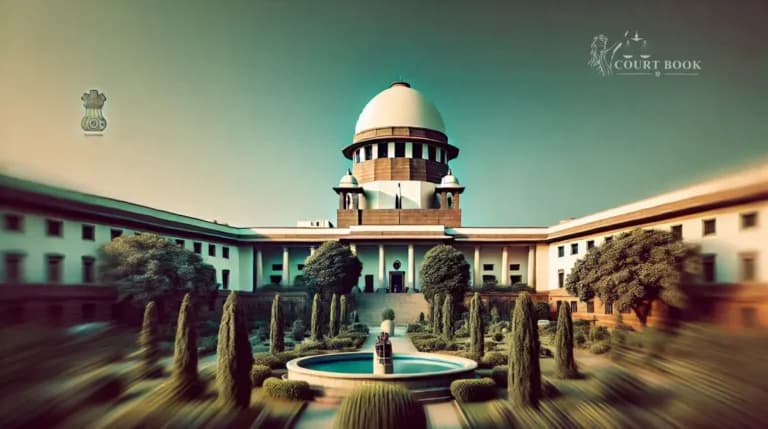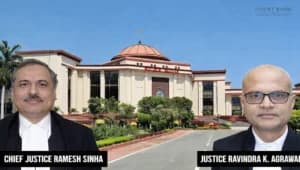The Supreme Court recently emphasized the need for a judicial approach while exercising powers under Section 156(3) of the Criminal Procedure Code (CrPC). The ruling in Om Prakash Ambadkar vs. State of Maharashtra & Ors. sheds light on how magistrates should handle applications seeking police investigations. Additionally, the Court discussed changes introduced by the Bharatiya Nagarik Suraksha Sanhita (BNSS), 2023, particularly Section 175(3), which ensures accountability in FIR registrations.
The Court criticized the mechanical use of Section 156(3) CrPC, highlighting that magistrates should not act as a "mere post office" but must apply judicial mind before ordering an investigation.
Investigations should be ordered only when necessary – A magistrate should only direct a police inquiry when the case requires active assistance from the State machinery.
Simple cases should go directly to trial – If the allegations are straightforward, the magistrate should record evidence and proceed with the trial instead of delegating the matter to the police.
Reasoned orders are mandatory – Before directing an investigation, the magistrate must consider whether the allegations constitute a cognizable offense.
"The Magistrate is not expected to mechanically direct investigation by the police without first examining whether in the facts and circumstances of the case, investigation by the State machinery is actually required or not." – Supreme Court
In the present case, the Court found that the Nagpur Bench of the Bombay High Court wrongly upheld the magistrate’s order, which directed FIR registration against the appellant-police officer. The Court ruled that the allegations did not meet the required legal threshold for offenses under Sections 323, 294, 500, 504, and 506 of IPC
Case Analysis: Why the Supreme Court Set Aside the FIR Order
The complainant, an advocate, alleged that he was humiliated and assaulted by a police officer. His FIR request was denied by the police, prompting him to file an application under Section 156(3) CrPC. The magistrate granted the request without assessing whether the allegations met the necessary legal standards.
Section 294 IPC (Obscene Acts and Songs): The Court clarified that abusive language alone does not constitute obscenity under this section.
Sections 504 & 506 IPC (Intentional Insult & Criminal Intimidation): Mere use of abusive or threatening words does not automatically satisfy the legal conditions for these offenses.
Section 500 IPC (Defamation): The Court questioned how a magistrate could direct a police investigation for a non-cognizable offense like defamation, which typically requires a direct complaint.
"Mere abusive, humiliating, or defamatory words by themselves are not sufficient to attract an offense under Section 294 IPC." – Supreme Court
The Court concluded that the magistrate acted mechanically and should have first examined whether the allegations warranted a police investigation or a direct trial.
Read Also:- Supreme Court Directs No WhatsApp or E-Service for Section 41A CrPC/BNSS Notices
How BNSS Section 175(3) Introduces New Safeguards
The Bharatiya Nagarik Suraksha Sanhita (BNSS), 2023, replaces CrPC and introduces additional safeguards under Section 175(3) to prevent the misuse of magistrates' powers.
Mandatory application to the Superintendent of Police – Before moving to a magistrate, the complainant must first apply to the SP, ensuring a proper review process.
Magistrate’s Power of Inquiry – The magistrate can conduct an inquiry before directing the registration of an FIR.
Police Officer’s Right to be Heard – Before passing any order, the magistrate must consider the explanation provided by the police officer regarding the refusal to register an FIR.
"BNSS mandates magistrates to consider police submissions before issuing orders under Section 175(3), ensuring judicial accountability and preventing misuse." – Supreme Court
Additionally, BNSS Section 175(4) provides extra protection for public servants, ensuring they are not wrongly implicated without a prior report from their superior officer.
Impact of the Supreme Court’s Judgment
This ruling has far-reaching implications for both magistrates and complainants:
Prevents misuse of FIR registration against public officials.
Ensures judicial accountability in cases under Section 156(3) CrPC.
Encourages magistrates to exercise discretion and pass reasoned orders.
Aligns with BNSS reforms to curb frivolous applications.
"The magistrate must apply his mind judicially before ordering an investigation. The introduction of BNSS Section 175(3) further strengthens this requirement." – Supreme Court
In light of these observations, the Supreme Court quashed the magistrate's order and set aside the High Court ruling, ensuring a fairer judicial process.















